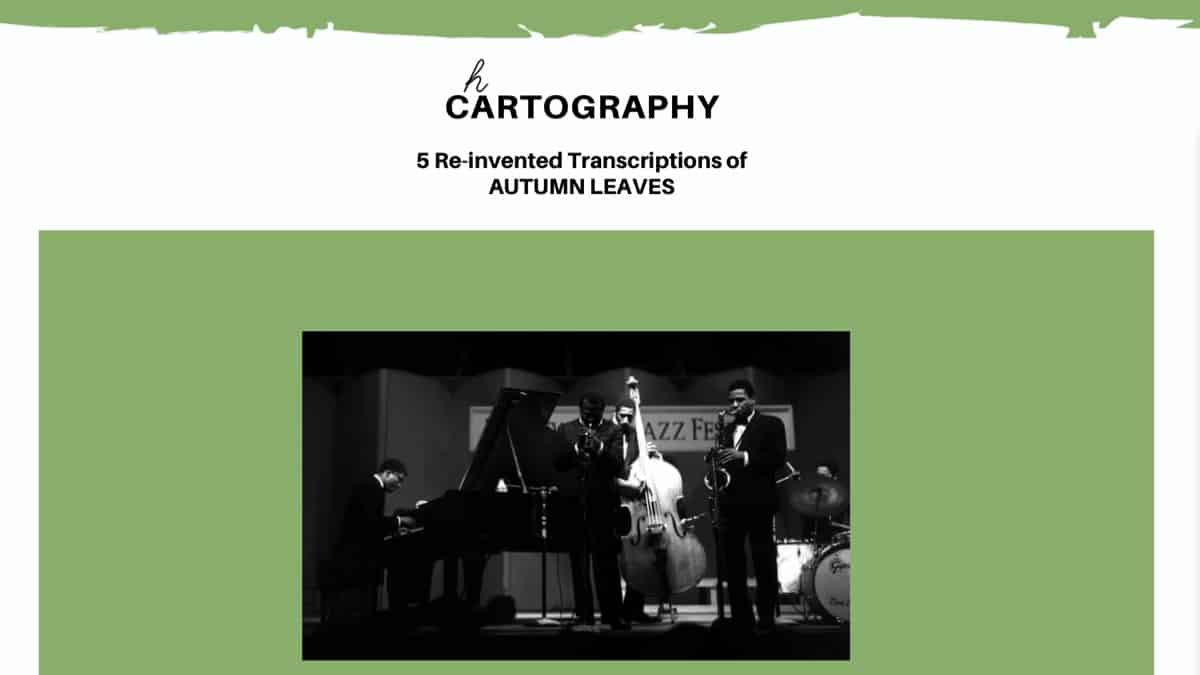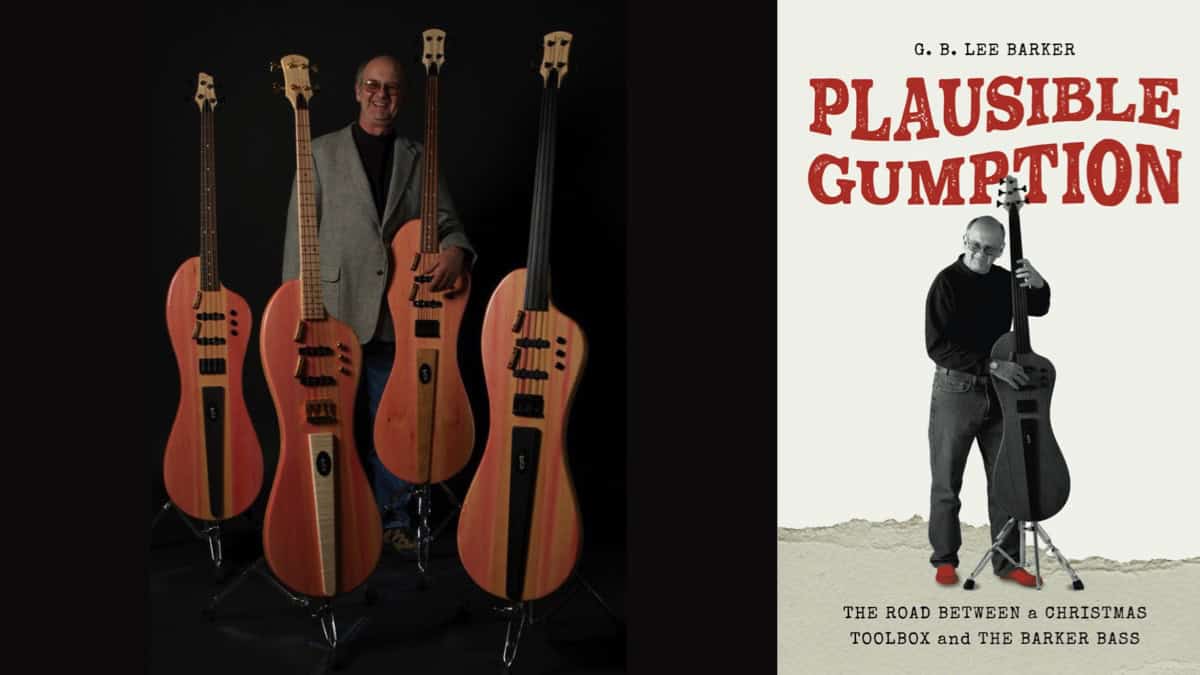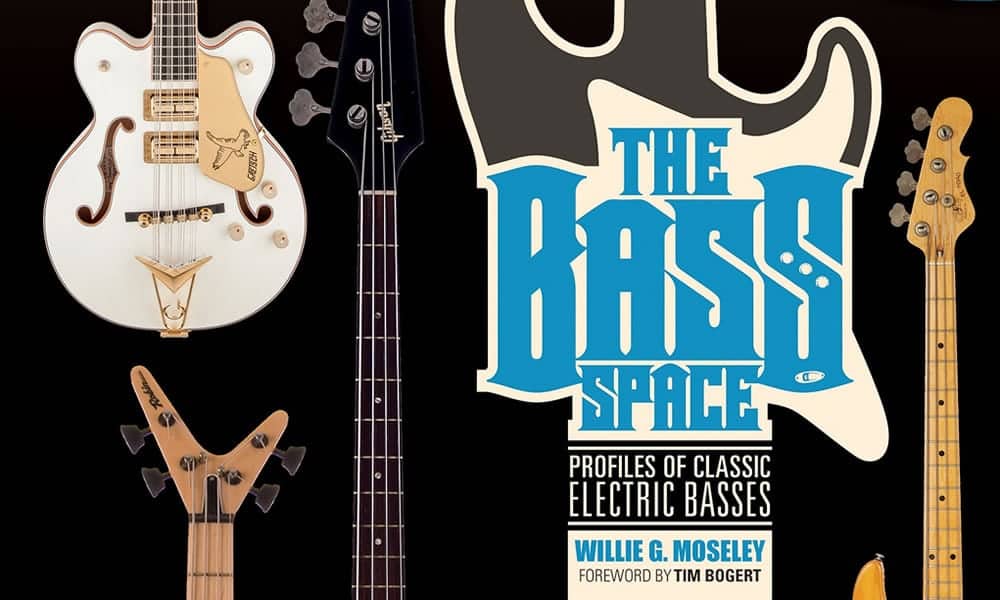Bass Books
Review: Ron Carter’s Cartography

Ron Carter’s Cartography…
If you have been under a rock you have probably never heard of Mr. Ron Carter however, I am betting that whether you know his name or not, you have definitely heard him!
Mr. Carter has recorded with virtually everyone well, maybe not Black Sabbath, but close! His resume includes:
- Miles Davis
- Chet Baker
- Freddie Hubbard
- George Benson
- Michael Franks
- Terence Blanchard
- Eric Dolphy
- Billy Cobham
- Roberta Flack
- And on and on!
He recently completed, in my opinion, one of the most important books for bassists and these particular concepts can be used by ALL MUSICIANS!
It is called “Cartography” and features transcriptions of “Autumn Leaves” over a 5 year period when he was with the Miles Davis Quintet.
What makes this book so important is threefold:
- You are privy to not one but 4 or 5 choruses of the tune so you can see how his bassline develops
- You follow the same musicians over 5 years playing the same song as the first tune of the set and you see how Ron’s lines create springboards for the other musicians to explore
- You see how the chosen bass notes evolve the chord changes into new and different structures. This is truly a history lesson, a reading lesson, and most importantly, a listening lesson.
Mr. Carter, through the wonders of technology, provides the QR codes so you can follow along with the actual live recordings and hear for yourself the amazing contributions these basslines create for the other musicians.
A couple of weeks back, I was on a Zoom conference call with Mr. Carter where he gave a host of bass players the nuts and bolts of this new way of looking at transcriptions. He elucidated the need for transcription procedures going forward to look at more than one chorus because:
- a- that chorus may not be the best one
- b- only one chorus does not illustrate the development of the line
- c- the development of the line may include substitute changes
This is a monumental work!
During the Zoom conference, I had the opportunity to ask a question and make an observation which was how important the “listening component” was. Being able to listen to each recording over and over before tackling the piece gives you so much more information to work with. As a matter of fact, I brought up the book by pianist Ran Blake, “The Primacy of the Ear,” which assists you in developing your ears and makes a great companion to this treatise.
(Oh, and by the way Mr. Carter, the vocalist was Jeanne Lee!)
So, what you have here is a book like no other.
Listening to 5 years of development, and by the way, I would also suggest listening to studio recordings from each year of this quintet because it will help you in understanding how rapid the band’s development occurred and brings a new understanding of how this one tune developed over time. There is so much here to hear!
To order the masterpiece, Cartography, go to roncarter.net… you will not be disappointed!
Bass Books
Interview With Barker Bass’s Inventor and Writer Lee Barker

If you are an electric bass player, this is an exciting time to be alive as this relatively new instrument evolves around us. Some creative individuals have taken an active role in this evolution and made giant leaps in their own direction. Lee Barker is one of these inventive people having created the Barker Bass.
Fortunately, Lee is also an excellent writer (among so many talents) and has recently released his book “Plausible Gumption, The Road Between a Christmas Toolbox and The Barker Bass”. This book is a very fun read for everyone and shares a ton of details about Lee’s life in general, his experiences as a musician, a radio host, and a luthier. Now I am fortunate to have the great opportunity to gain even more insights into this renaissance man with this video interview.
Plausible Gumption, The Road Between a Christmas Toolbox and The Barker Bass is available online at Amazon.com
Bass Books
Ultimate Look at Electric Basses from 1930 to Today

The Bass Space: Profiles of Classic Electric Basses.
The definitive book for lovers of the low-end. Willie G. Moseley, Senior Writer for Vintage Guitar Magazine, profiles more than 100 historic and unique electric bass models from such makers as Alembic, Danelectro, Fender, Gibson, Gretsch, Guild, Hamer, Kramer, Rickenbacker, and many others.
Rare and legendary instruments, from the earliest attempts at amplified basses in the mid-1930s to the cutting-edge instruments of today, are presented in more than 250 color and period photos.
The main feature of this book is the exclusive coverage of historic and one-of-a-kind basses owned and played by such famed musicians as: Bill Black (Elvis Presley), Tim Bogert (Vanilla Fudge), Mark Egan (Pat Metheny Group), John Entwistle (The Who), Paul Goddard (Atlanta Rhythm Section), Bruce Hall (REO Speedwagon), Greg Lake (Emerson, Lake & Palmer), Benjamin Orr (The Cars), Tom Petersson (Cheap Trick), Carl Radle (Derek and the Dominos), Gene Simmons (Kiss), Steve Wariner, and others.
The Bass Space: Profiles of Classic Electric Basses is available online at Amazon.com
Bass Books
Review: The Bastard Instrument, A Cultural History of the Electric Bass by Brian F Wright

I was intrigued when The Bastard Instrument showed up on my desk… let’s dig in!
When we dive into the history of our beloved instrument, the bass, we find roots that go back as far as the 15th century. This instrument was a member of the violin family and was for the longest time, an acoustic instrument. As the years passed and music changed, there was a need for the instrument to evolve and the electric bass was born.
Comparatively, the electric bass is a relatively new instrument with its earliest appearances dating back to the 1930s and it is exciting to be an electric bass player while this history unfolds around us. Fortunately for us and future generations to come, Professor Brian F. Wright has taken on the herculean task of documenting the trajectory of the electric bass with this excellent book.
The Bastard Instrument presents an extraordinary amount of fine details about the instrument itself, the development of the amplification to handle its output, the pioneers that dared play it, the rapidly evolving music that flourished because of its presence and so much more.
When I first started reading this book, I noticed that it felt a tad academic, like a textbook (it might be one someday) or a doctoral thesis, but to present all this information accurately, this approach is more than appropriate. Another detail that might be a bit of a spoiler is that the book only gets us up to the late ’60s. I was left wanting more as we know that so much has happened in the bass world since that time frame; I hope there is another volume in the works to get us up to the present!
All in all, “The Bastard Instrument, A Cultural History of the Electric Bass” is a must-read for all of us who play electric bass and understand its essential place in music.
I found that there was a lot that I already knew but also quite a bit that I was unaware of. I believe that to know and understand where you are, you must know the history of exactly how you got here.
Highly recommended.
The Bastard Instrument is available at Amazon.com (beginning July 2024)
Bass Books
Review: The Bassist’s Complete Guide to Injury Management, Prevention and Better Health

The Bassist’s Complete Guide to Injury Management, Prevention and Better Health
I have often thought that it would be great if the doctors who delivered us as newborn babies provided us with a user manual to help us navigate through life in the best way possible. Now Dr. Randall Kertz, D.C. has produced a manual specifically designed to address the many possible afflictions plaguing us bass players.
Many of you will remember volumes 1 & 2 of this book and our first review in 2007. The new complete guide combines the two volumes and features over 20 pages of new material including interviews, techniques, and conditions.
If you play bass, you can read this book cover to cover and walk away with a ton of relevant and helpful knowledge. Another option is to search out issues relevant to you specifically (I found quite a few of my own with helpful options). This is possible because the book is very nicely organized into six chapters that address Pain, Conditions, Techniques, Road Issues, Inspirational Q&A with some of the biggest names in the bass community (too many to list here) and finally How to get relief.
All said, this book is essential if you play either electric or upright bass to the point where they should issue you one when you get that first bass in your hands.
Lastly, if you have this book and you have specific questions, Dr. Kertz is readily available through his website, www.drkertz.com. As if that was not enough, he has a wealth of knowledge you can find right here on our website at bassmusicianmagazine.com/author/randallkertz
Get this book… Live long and play bass well into the years! Available on Amazon.com
Bass Books
The Bassist’s Complete Guide to Injury Management, Prevention & Better Health

The Bassist’s Complete Guide to Injury Management, Prevention & Better Health is now available!

A compilation of Volumes 1 & 2 of the acclaimed Bassist’s Guide with 20+ pages of new interviews, techniques, and conditions, The Complete Guide puts everything in one convenient place.
Available at Amazon.com and from our friends at Bassline Publishing
Follow Dr. Kertz’s Bass Player Health at Bass Musician Magazine

